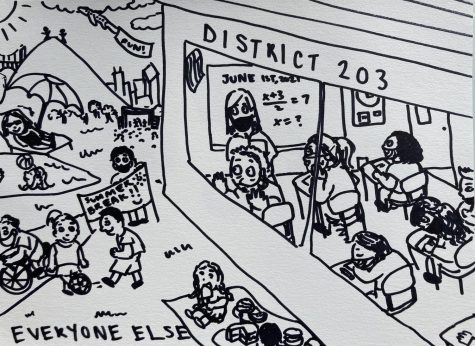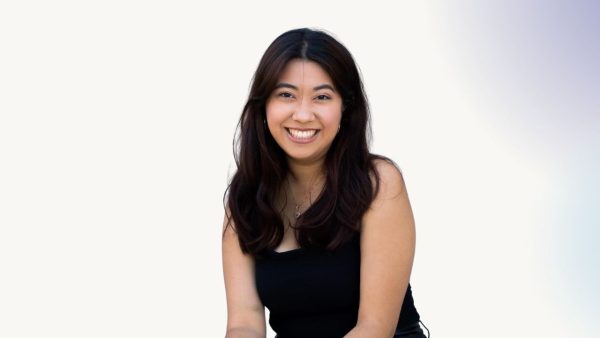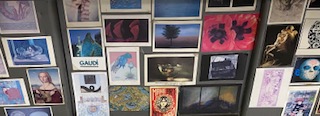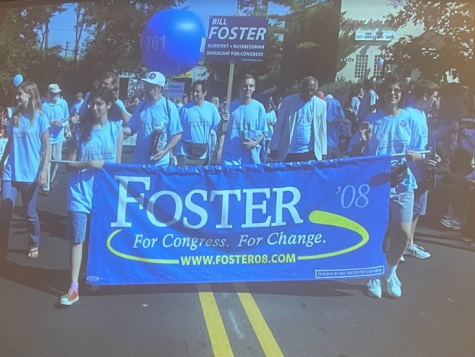The digital world

The rapid digitalization of our world is evident: we live in the age of smartphones, airpods and virtual reality. Quarantining and social distancing due to COVID-19 served to accelerate this digitalization by limiting person-to-person contact. This in turn has caused people to rely on technology, largely social media platforms, in order to maintain personal contacts and relationships. Furthermore, schools and many jobs have relied on this same technology to continue functioning throughout the past year. Social media platforms such as Facebook, Twitter, Instagram and even Google have advanced algorithms that cater to the user’s interest, prioritizing posts the user is most likely to engage with (like, re-tweet, comment, ect). On a surface level, the strategic influx of information based on the scroller’s “digital footprint” may seem harmless — yet this is far from the truth.
“Because search engines and social media platforms have algorithms that note your preferences and interests in order to provide you what you are looking for, the internet environment is one where you can remain in a cultural ‘bubble’ where most of the information you interact with fits your worldview,” said Dr. Tara Forcier, a licensed pediatrician with a bachelor’s degree in psychology. “This is called confirmation bias and allows people to resolve any cognitive dissonance by limiting exposure to information that does not align with existing beliefs.”
Understanding cognitive dissonance is key to grasping the underlying dangers of algorithms. According to Forcier, cognitive dissonance is the discomfort a person experiences when confronted with information that is contrary to their beliefs or actions. This discomfort may challenge a person’s current perceptions and facilitates social and emotional growth. Yet social media sites use algorithms that streamline information for the user’s preferences in order to limit cognitive dissonance and ensure the comfort of the user, which in turns limits cognitive growth and affirms cultural bias.
Naperville North junior Bill Zheng comments on why companies utilize algorithms, which in some cases spread fake news.
“Algorithms push people into seeing the same things that they would like to see, following their confirmation biases. It’s to get more clicks, to get social media companies more ad revenue and causes them to make more money,” Bill Zheng said.
Algorithms can facilitate polarized values by feeding people information that they already agreed with or knew beforehand. This leads people to view issues as black and white, with a clear “wrong” and a “right,” inducing uncompromising viewpoints. Naperville North sociology teacher Ryan Dengel expresses his concerns that this phenomenon will limit people’s ability to carry out respectful disagreements.
“My fear is that some people within your generation are losing that ability to have civil discourse, to not have Twitter wars, but to have conversations with people that strongly disagree with them,” Ryan Dengel said.
Forcier attests that before social media, American entertainment relied on mass media such as television and radios — devices that, due to technological limitations, are unable to be customized to individual users. This mass entertainment presented a united American culture with common values, as opposed to current entertainment platforms designed to cater to individual’s values, dividing and polarizing the American people.
“Now streaming services offer selections because you ‘liked’ a particular show or movie. This is very different from my experience growing up when we only had the shows on cable TV,” Forcier said. “In a way, we had a more cohesive American culture because we all watched or were familiar with the same shows and movies. Now you may have more choices but your experience is curated and different from that of many other people.”
According to a survey conducted by the Pew Research Center, 86% of Americans said they got their news from a digital device such as a smartphone or laptop. Of these people, 53% got their news from social media. Due to algorithms, relying on social media as a main source of news endangers unbiased truth because the filtration of information may narrow the news sources to which the user is exposed. Naperville North junior Leah Jacobs expresses her concern regarding filtration of information.
“Social media can give you one side of a story, and I think it’s kinda dangerous only seeing one side of the story,” Jacobs said.
Though social media presents definite negatives, its benefits — especially in COVID times — cannot be overlooked. We have social media to thank for allowing loved ones to stay connected, important information to be spread quickly and communities around the world to share ideas and learn from one another during these unprecedented times.
“The impact all of this will have on the teens of today remains to be seen. On the one hand, teens have access to more information and resources than ever before. This could lead to greater connections and shared resources around the world. But on the other hand, it is far too easy to minimize cognitive dissonance and growth. This could lead to people remaining in a ‘bubble’ and using confirmation bias to avoid being challenged,” Forcier said.
Teens are becoming more aware of the usage of algorithms on social media sites, and many oppose these strategies that involve the monitoring of their personal social media activity.
“Yes, I think it’s kind of terrifying. I play soccer, and on Instagram I found ad after ad of soccer things,” Jacobs said.
The banning of these algorithm usages by groups such as the Federal Trade Commision (FTC) is limited due to the First Amendment Freedom of Speech. Whether this amendment extends to algorithms is still being greatly debated, and will remain an important issue as social media usage is projected to continue increasing.
“As more and more people grow aware of this issue, I think in the future, we’ll see more regulations put on algorithms and more regulations put on social media companies and how much data they can take or use, ” Zheng said
Naperville North Psychology teacher Colin White believes that students, as well as adults, must be aware of the one-sided viewpoints of social media sites and responsible for their own consumption of information.
“We have to think: who’s responsible for the gatekeeping of information. That’s on us, we all have to take that individual responsibility for gatekeeping our own information. How do we discern fact from fiction? Also, use more than one source and find the common thread,” White said.

Lucy Westlake is a junior at Naperville North and proud to be part of The North Star. As a new staff member, she is looking forward to stretching her journalistic...

Elissa is a senior at North and is excited for her second year on The North Star. This year, Elissa will be taking on the role as the Features Editor....










